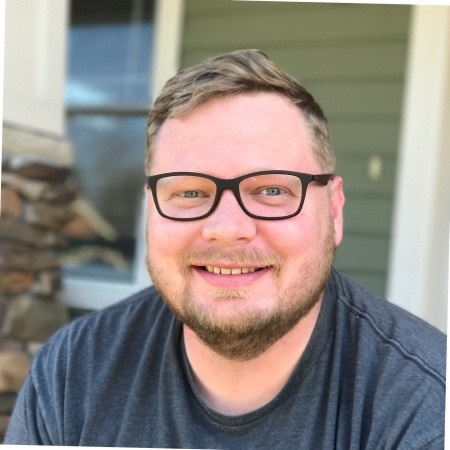Rev. Luke Lingle is the kind of person who brings passion to every endeavor. A natural advocate for social impact and community revitalization, he wears many hats: minister, community leader, and educator. As the Director of Pathways Towards Impact (PTI) at the Center for Leadership Excellence, Lingle has made it his mission to help North Carolina United Methodist Churches spark sustainable, positive change. His involvement with the Algernon Sydney Sullivan Foundation as a Faculty Director allows him to guide undergraduates, showing them how to build genuine relationships that make a difference.
The Seeds of Community Engagement
Lingle’s journey began with a solid foundation in theology and a desire to make an impact beyond the pulpit. He attended seminary right after completing his undergraduate degree, a decision that led him into ministry. Early in his career, he was drawn to the work of the Missional Wisdom Foundation, a United Methodist Extension Ministry based in Dallas, Texas. There, Lingle began his exploration of how churches could evolve to better serve their communities.
“I got involved with Missional Wisdom Foundation to explore how the church could reimagine itself and better serve the community,” Lingle reflected. “It was about bringing new life to the local church and experimenting with creative ways to be part of the neighborhood.”
His experiences eventually brought him to North Carolina, where he worked on adaptive reuse projects—finding new purposes for old buildings that no longer served their original intent. One such project was Haw Creek Commons in Asheville, North Carolina, where Lingle took a struggling local church and transformed it into a thriving community hub.
Breathe New Life into Old Spaces
As the Executive Pastor at Central United Methodist Church in Asheville, Lingle embraced the challenge of turning the traditional idea of a church on its head. It wasn’t just about Sunday services anymore. He wanted the building itself—every corner, every room—to serve the people around it. He worked to turn Central United Methodist into a place for community engagement, where initiatives for food accessibility, education, and social gathering flourished.
“Most church buildings in America are used maybe one or two days a week,” Lingle pointed out. “Our question was, how can we utilize these spaces in ways that truly benefit the community?”
Lingle saw these unused spaces as opportunities. His work wasn’t about brick and mortar—it was about what those bricks and mortar could mean to people. The transformation of Central United Methodist into a community hub was as much about engaging hearts and minds as it was about physical renovation.
Mentoring Beyond the Church Walls
Lingle isn’t just a pastor—he’s a mentor, a coach, a writer, and an advocate for stewardship. For him, the work of the church doesn’t end at the church doors. He has a way of making the people around him feel like they are part of something bigger, something meaningful. He draws from his own experiences to support those in leadership roles, helping them to see how they can make their own mark.
“Part of our work is to share God’s love throughout the communities where we are planted,” Lingle said. “Our context matters, and proper stewardship can help grow our impact.”
Lingle believes that stewardship isn’t just about managing money or resources—it’s about nurturing relationships and maximizing the potential of every asset, from physical spaces to the talents of the people who occupy them. His approach to mentorship is hands-on and deeply rooted in his understanding of the communities he serves.
Teaching the Next Generation
As the Faculty Director for the Algernon Sydney Sullivan Foundation, Lingle is actively shaping future leaders. He guides undergraduate fellows in the art of listening—listening to communities, listening to one another, and listening to the needs that often go unnoticed. He encourages students to view challenges not as obstacles but as opportunities for growth and change.
“Helping students understand the importance of listening to their community is key,” Lingle noted. “It’s about relationship-building and finding out how to work with others to address the needs that matter most.”
The Sullivan Foundation’s emphasis on leadership, community service, and social entrepreneurship provides a perfect backdrop for Lingle’s mentorship. He brings his real-world experience to the classroom, inspiring students to look beyond themselves and understand the collective power they hold to make change.
A Different Kind of Leadership
Lingle’s work is fundamentally about stewardship, purpose, and vision. He sees his role as a bridge-builder—connecting people to one another, connecting resources to needs, and connecting the mission of the church to the broader community. “How we steward the gifts given to us by God is important work,” Lingle emphasized.
His work with the Sullivan Foundation, PTI, and local communities is driven by the desire to create tangible, positive change. Lingle knows that community development is about more than buildings and budgets; it’s about investing in people and cultivating relationships that uplift everyone involved.
Back to all News items.


